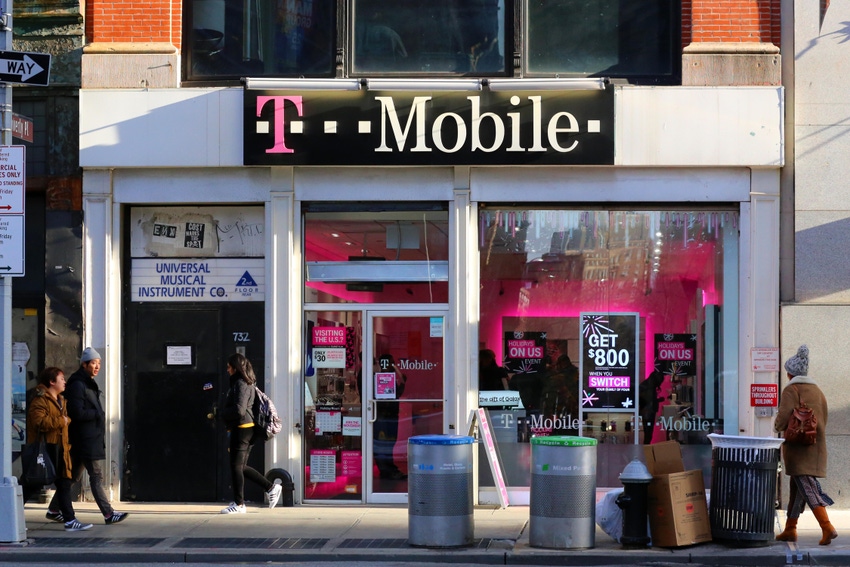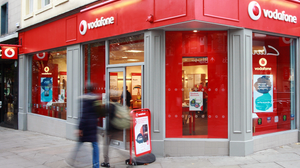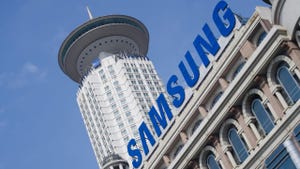T-Mobile puts 1.2TB soft cap on its FWA service
After applying the cap to new customers in January, T-Mobile is now warning that all of its FWA customers may be subject to slower speeds if they consume more than 1.2TB of data in a month.

T-Mobile said it now may slow down the speeds of its fixed wireless customers if they use more than 1.2TB of data per month.
The company said it began implementing that soft cap on its new fixed wireless access (FWA) customers starting in January, and recently expanded the cap to all of its FWA customers. T-Mobile ended last year with almost 5 million FWA customers, making it one of the country's largest Internet service providers.
"During congestion, Home Internet customers may notice speeds lower than other customers and further reduction if using >1.2 TB/mo., due to data prioritization," T-Mobile warns on its website.
"Home Internet" is the name T-Mobile has given to its FWA service, which runs over its 5G network. That's not to be confused with T-Mobile Fiber, which runs over other companies' fiber networks.
T-Mobile's new FWA soft cap was first reported by several publications including The Mobile Report. The company confirmed the development in response to questions from Light Reading.
Network management
It's no surprise that T-Mobile may slow the speeds of its data-hungry users. After all, Comcast employs the same cap. According to Comcast's website, "customers who use more than 1.2 TB of data in a month for the first time will not be billed for exceeding the limit. After that, blocks of 50GB will automatically be added to your account for an additional fee of $10 each plus tax. Charges will not exceed $100 each month, no matter how much data you use."
Moreover, T-Mobile employs a similar soft cap on some of its smartphone plans for customers who consume more than 50GB or 100GB per month. Such customers may see their speeds slowed compared with other customers.
T-Mobile offers extensive details on its various network management efforts on its website. "Where the network is lightly loaded in relation to available capacity, a customer whose data is prioritized higher than other traffic will notice little, if any, effect from having higher priority. This will be the case in the vast majority of times and locations," according to the company.
A question of capacity
On its website, T-Mobile also offers a definition of its "heavy data users."
"A 'Heavy Data User' is defined as a customer using more than a set amount of data on a billing cycle (generally 50GB or 100GB). As of January 18, 2024, new T-Mobile Home Internet customers using more than 1.2TB of data in a billing cycle are also considered Heavy Data Users," the company explains.
Continues T-Mobile: "Heavy Data Users (as defined by a customer's rate plan) will have their data usage prioritized below the data usage (including tethering) of other customers at times and at locations where there are competing customer demands for network resources, which may result in slower data speeds. As of January 18, 2024, new T-Mobile Home Internet customers who exceed 1.2TB of data usage for the current billing cycle will be prioritized last on the network."
However, T-Mobile said its FWA customers probably won't encounter such caps. "Because T-Mobile Home Internet equipment is intended to be stationary and is only available in limited areas, these customers should be less likely to notice congestion in general," according to the company.
It's no secret that FWA offerings from the likes of T-Mobile, AT&T and Verizon may be constrained. Indeed, according to a study commissioned by CTIA, the US wireless industry's main trade association, 5G networks may begin to run out of capacity within the next five years.
T-Mobile, for its part, predicts it will gain up to 8 million FWA customers by 2025. By that time, Verizon hopes to count up to 5 million FWA customers. The companies haven't offered FWA projections beyond 2025. And both have suggested they may have to invest in additional infrastructure – whether that's more towers or more spectrum – in order to expand their FWA operations beyond those targets.
About the Author(s)
You May Also Like












